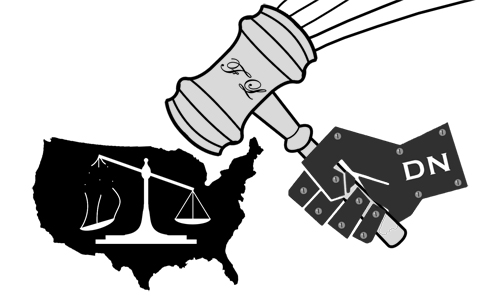The trial of Trayvon Martin is over. Yes, I meant Trayvon Martin, not George Zimmerman. When you think of murder trials, you rarely think of the victims as being on trial. They’re the victims, after all. They’re the ones who lost their lives. They are not here to speak for themselves anymore. They are usually painted with the most sorrowful of colors, their lives mourned and their memories safeguarded. Funny how different this trial was.
Will we pay attention?

The trial of Trayvon Martin is over. Yes, I meant Trayvon Martin, not George Zimmerman.
When you think of murder trials, you rarely think of the victims as being on trial. They’re the victims, after all. They’re the ones who lost their lives. They are not here to speak for themselves anymore. They are usually painted with the most sorrowful of colors, their lives mourned and their memories safeguarded. Funny how different this trial was.
The fact that a child’s—yes, a child’s—life was brutally taken often seemed all but lost in the courtroom. In the end, what it all boiled down to is that the way he looked, what he wore and how he acted somehow justified his murder. It’s not every day you see the victim on trial for his own murder, but that’s exactly what happened.
The thing is, there’s not a whole lot more to be said. Every talk show and commentator has covered it from start to finish. It’s over. Maybe there will be a federal civil rights trial. Maybe there won’t. But will it matter?
In the end, this trial, like the O.J. Simpson murder trial, revealed more than just the fact that Florida has some ludicrous laws (though it did that very well). It showed that we are a country paralyzed by the issue of race—transfixed by it, yet utterly inept at understanding and talking about it.
And I say “understanding” rather than “solving” because I don’t think you can solve it any more than you can rip people’s hearts from their bodies, reshape them, put them back in and expect them to beat differently.
Racial tension exists because people exist. We’re the ones who invented race, after all. Does that mean we can’t grapple with it or find hope and healing? Absolutely not. Too often, people want to solve the problem so we can “move on” (whatever that means) despite the fact that in almost no situation does that ever work.
It’s not just ignorant to suggest that a centuries-old violation of human rights based on skin color can be solved and moved on from—it’s really the problem.
We have the audacity to think that as long as we don’t see or experience it overtly, it can’t really be that bad. Then trials like this throw it on our laps again in a very public way and show us we’re nowhere closer to resolution than we were 18 years ago.
Regardless of the details of the case, it feels like deja vu. In a Huffington Post/YouGov poll, the majority of whites thought Zimmerman was not guilty and the majority of blacks thought he was. We watched the same trial, heard the same testimony and delivered completely different verdicts. Sure, there was a huge national discussion about the “stand your ground” law, but the overarching theme of the trial was undeniably race, and it split us squarely down the middle.
The question is, will we take a moment to listen instead of talk? I hope so. Otherwise, in another few years, we’ll be slapped with another massive headline and still be scratching our heads, wondering what hit us. As progressive and modern as we think we are, it sometimes seems we’re moving backwards.
Perhaps that’s just pessimism, but the fact that we are still as divided as we were almost 20 years after the Simpson trial means we’ve had a whole new generation born in the meantime and we’re still thinking the same way.
Sadly for Trayvon Martin, this trial served as a barometer for our country, and while I hear a lot of voices, I wonder if there’s any listening. Not just polite listening, but the kind that says, “I’m willing to give up my opinion for a moment to hear yours. I will set aside my experience for a minute to understand yours. I’m willing to accept I could be wrong so I can hear what you think.”
Our country is broken by the sins of its past and yet they do not remain there. They follow us and will continue to follow us unless we stop trying to be right and start trying to understand.







It makes no sense to write “When you think of murder trials, you rarely think of the victims as being on trial.” The whole point of this trial was to determine who the victim was. Even if you don’t think George Zimmerman was a victim, you should be able to see that if he were right, then he would have been the victim–that was his whole argument (self defense).